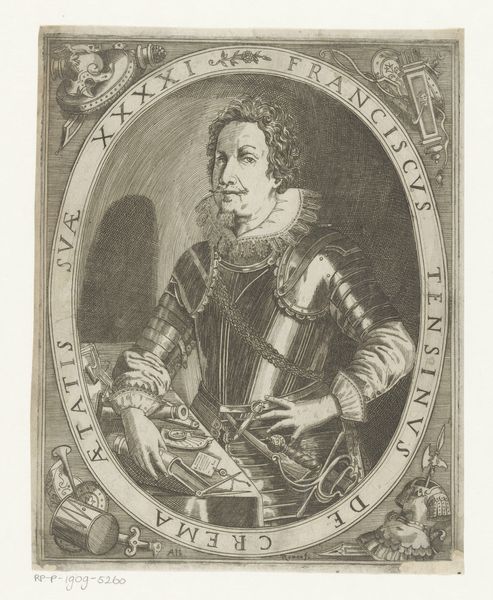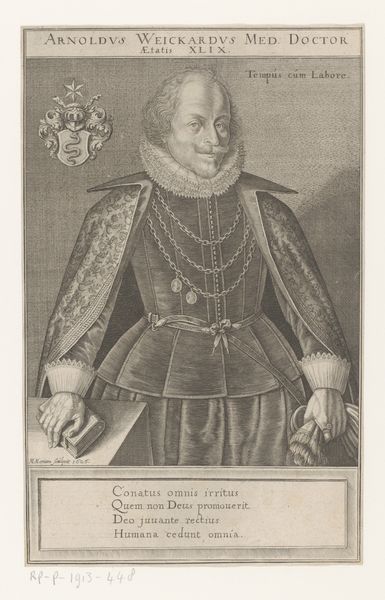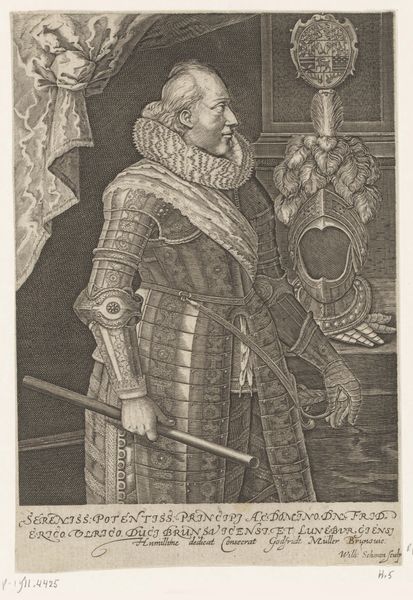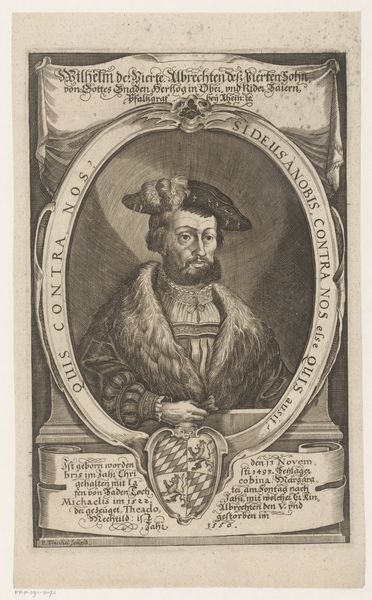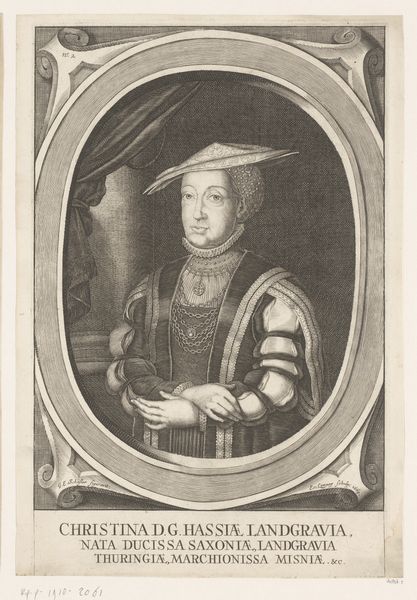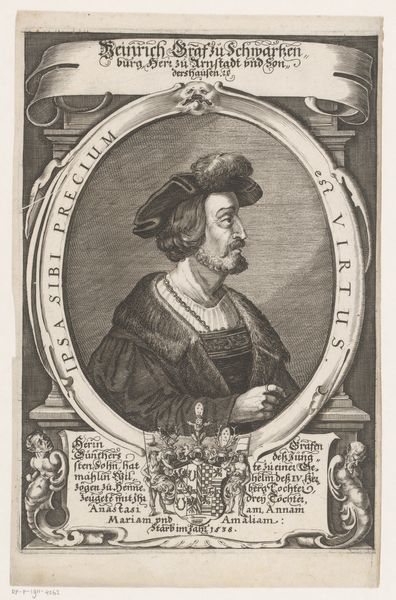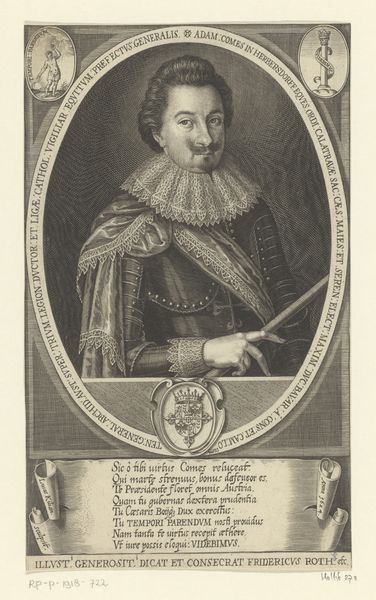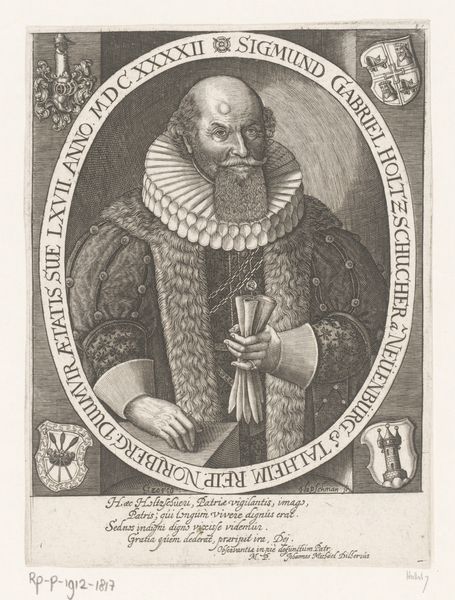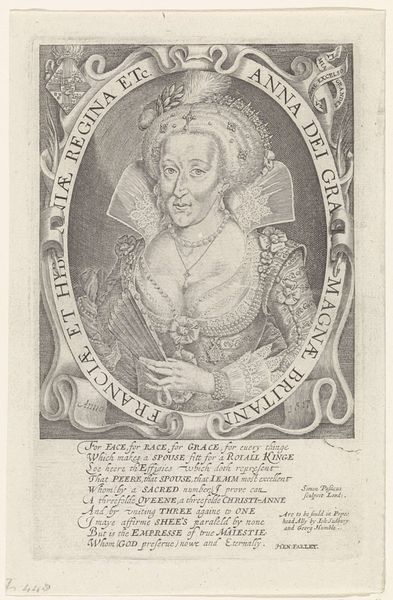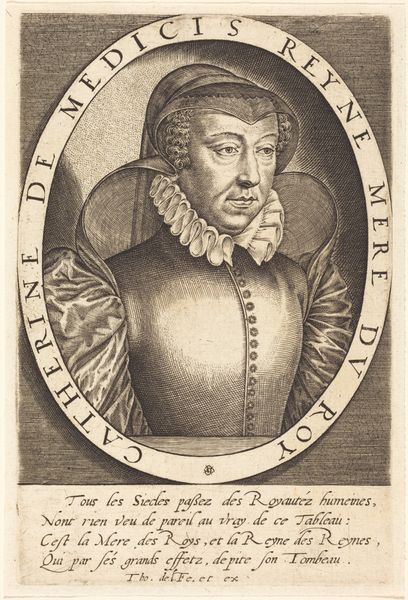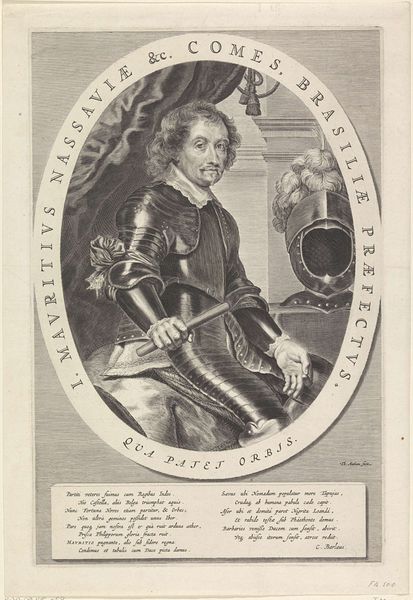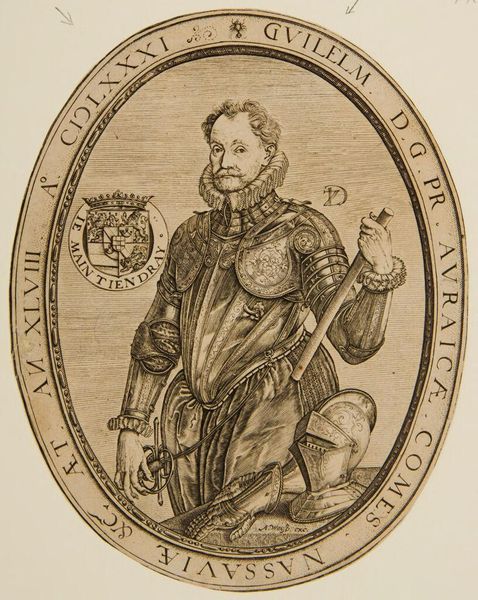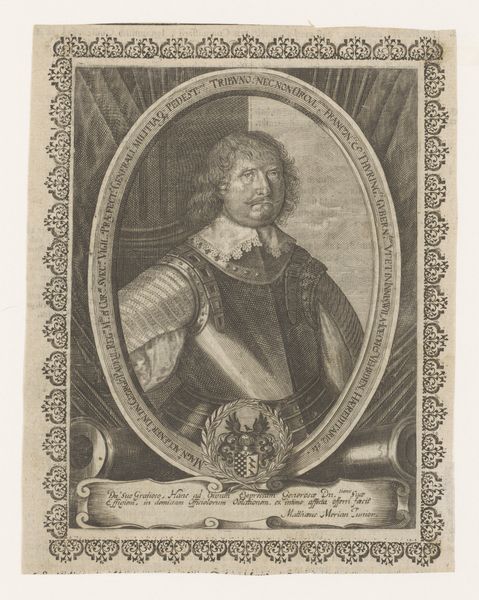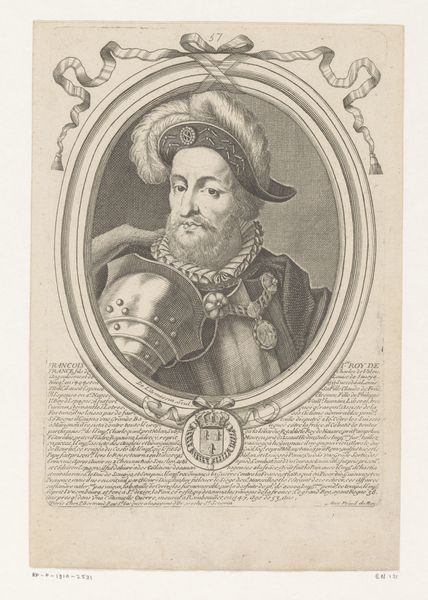
engraving
#
portrait
#
baroque
#
old engraving style
#
11_renaissance
#
history-painting
#
engraving
Dimensions: height 153 mm, width 123 mm
Copyright: Rijks Museum: Open Domain
This portrait of Carl Kress von Kressenstein was made by Hans Troschel, around the early 17th century, using engraving. This is a printmaking technique where an image is incised into a plate, which is then inked and used to make impressions on paper. The process is meticulous, requiring skilled hands to transfer the drawing to the metal and then engrave it with fine detail. Notice how Troschel used hatching and cross-hatching to create tonal variation and textures, from the fabric of von Kressenstein’s doublet to the delicate ruff around his neck. This image also gives us a glimpse into the textile industry of the period; it’s a record of how the wealthy dressed and adorned themselves. Consider all the steps involved in making these clothes, from raw materials to finished garments. It speaks to broader issues of labor, class, and consumption during this period. Ultimately, this image reminds us of the complex relationship between materials, making, and social context, urging us to see beyond the image and consider the labor and craftsmanship that made it possible.
Comments
No comments
Be the first to comment and join the conversation on the ultimate creative platform.
